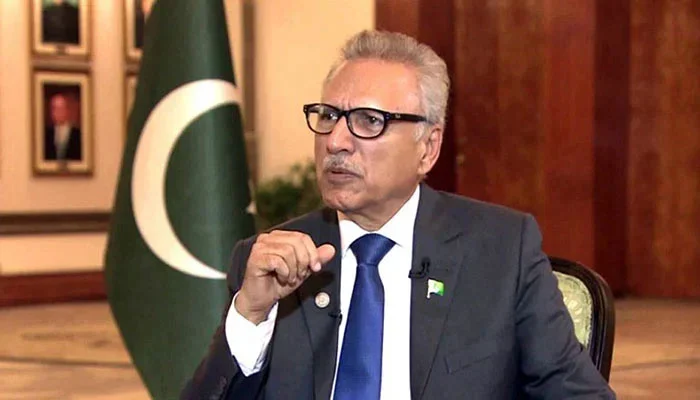ISLAMABAD: Former president and senior Pakistan Tehreek-e-Insaf (PTI) leader Dr. Arif Alvi has expressed his willingness to participate in dialogue regarding the country’s next general elections, amidst growing calls for political reconciliation.
Speaking to CNN during a private visit to the United States, Alvi stated, “If dialogues are held regarding the next elections, we will welcome it.” His remarks come at a time when multiple factions, including those within PTI, have been advocating for talks with state institutions to break the prevailing political deadlock.
Negotiation Efforts Underway
PTI senator Azam Swati, in a conversation with a private television channel, revealed that backchannel communication with the establishment has already begun — with permission from PTI founder Imran Khan.
Swati disclosed that he has been reaching out to key stakeholders since Thursday, and a significant meeting with a “special personality” is scheduled for next Wednesday. He suggested that former president Alvi and other senior PTI figures may join the dialogue process once Alvi returns to Pakistan.
“I have sent a message to Dr. Alvi that I am meeting someone next Wednesday. I want Alvi and some other friends to join me,” Swati stated, adding that progress in these talks will likely be visible soon.
Balochistan Concerns and Election Claims
In his interview, Dr. Alvi also addressed the political and socio-economic grievances in Balochistan, asserting that dialogue is the only viable path forward to resolve long-standing issues in the province.
He alleged that PTI won a majority of votes in Balochistan during the February 8, 2024 general elections, but those votes were allegedly undercounted. “Had the votes been counted accurately, PTI would have formed governments in all provinces, including Balochistan,” he claimed.
Dr. Alvi voiced concern over growing disillusionment among Balochistan’s youth, stating that their voices remain unheard and their frustrations ignored. He also condemned the state’s use of force to quell protests, warning that such measures only deepen the public’s sense of alienation.
Media Restrictions and Censorship
The former president also criticized the current state of media freedom in Pakistan, claiming that print, electronic, and social media platforms are under severe restrictions. He specifically pointed out that X (formerly Twitter) remains largely inaccessible without a VPN, calling it a reflection of the broader suppression of free speech.




